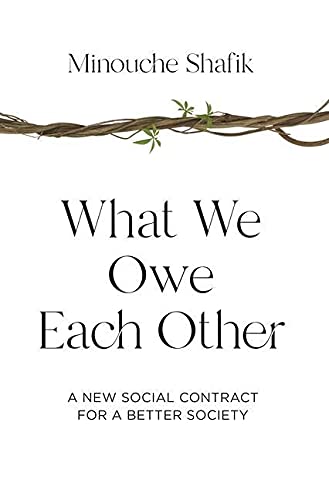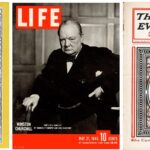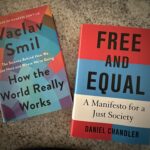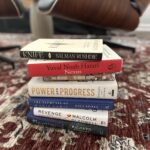I just finished reading a book this week that I would highly recommend. It’s called What We Owe Each Other: A New Social Contract for a Better Society. Author Minouche Shafik, who was recently named as a board member of the Bill and Melinda Gates Foundation, writes about the most important issues we face today and frames them in the structure of thinking about the social contract. Shafik is director of the London School of Economics and Political Science. She was vice president of the World Bank, permanent secretary of the Department for International Development, deputy managing director of the International Monetary Fund, and deputy governor of the Bank of England.
Here is the book description from the publisher: “Whether we realize it or not, all of us participate in the social contract every day through mutual obligations among our family, community, place of work, and fellow citizens. Caring for others, paying taxes, and benefiting from public services define the social contract that supports and binds us together as a society. Today, however, our social contract has been broken by changing gender roles, technology, new models of work, aging, and the perils of climate change.
“Minouche Shafik takes us through stages of life we all experience—raising children, getting educated, falling ill, working, growing old—and shows how a reordering of our societies is possible. Drawing on evidence and examples from around the world, she shows how every country can provide citizens with the basics to have a decent life and be able to contribute to society. But we owe each other more than this. A more generous and inclusive society would also share more risks collectively and ask everyone to contribute for as long as they can so that everyone can fulfill their potential. What We Owe Each Other identifies the key elements of a better social contract that recognizes our interdependencies, supports and invests more in each other, and expects more of individuals in return.
“Powerful, hopeful, and thought-provoking, What We Owe Each Other provides practical solutions to current challenges and demonstrates how we can build a better society—together.”






